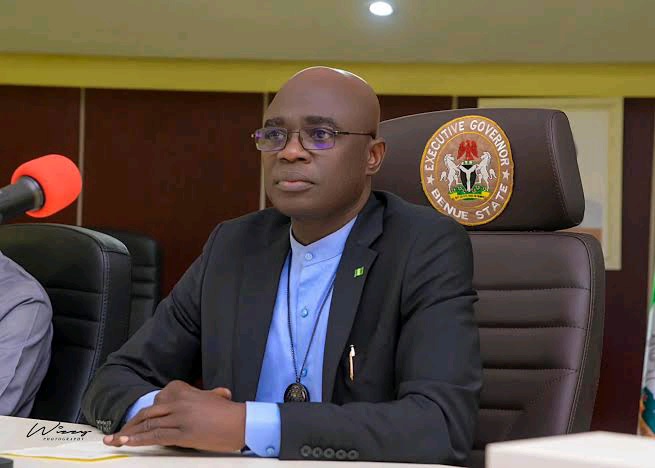Fr. Chinaka Justin Mbaeri
When the Church continues to frown and discourage her priests from getting involved in partisan politics and running for political office, it’s not out of sentiment or because She wants to deny anybody ambition; however, She does this as a result of a long bitter history behind it. The Church has seen firsthand how messy and disastrous things turn out when priests leave the altar for the political podium. And believe me, the results have never ended well.
Let’s call a spade a spade. There’s a long list of priests who abandoned their priestly vocation, entered politics, and ended up as national embarrassments, both to themselves, their nations, and sadly, to the Church.
Take Jean-Bertrand Aristide of Haiti for example (President from 1991 – 1996 and again from 2001 – 2004). He started off as the voice of the people and a liberation hero. But how did it end? Violence, corruption, human rights abuses everywhere, making him become a complete moral failure. The same Salesian congregation that trained him had to suspend him from priestly ministry just to save their face from disgrace and shame.
Then look at Fulbert Youlou in Congo-Brazzaville (President from 1960 – 1963). Another priest who felt politics was his next pulpit. He resigned from the priesthood, became President, and quickly became part of the country’s political crisis. His leadership was full of ethnic divisions, oppression, and bad governance, until the people rose and protested strongly, which led to the collapse of his government. The people chased him out like a thief in the night.
And who can forget Jozef Tiso of Slovakia (President from 1939 – 1945)? Another priest who thought political power would help him serve people better. During the Second World War, instead of standing for justice and human dignity, he collaborated with the Nazis, facilitated the deportation of Jews, and ended up facing the death penalty for war crimes. It was not only failure but fatal disgrace for his people and the Church.
And for those who think this is just a problem of the distant past, we’ve seen other priests in more recent times, from different parts of the world, jumping into politics and leaving behind a trail of broken promises, bad governance, and scandal. Check the records in Latin America and even some parts of Africa. It’s the same script, different actors. A striking example is the case of Fernando Lugo, a former Catholic bishop who served as President of Paraguay from 2008 to 2012. Lugo, once revered as the “bishop of the poor,” entered politics with high hopes of reform. However, his presidency quickly unravelled. He was impeached in June 2012 after just four years in office because parliament cited his failures on security, nepotism, and land policy during a violent clash between police and landless farmers that resulted in seventeen deaths. Even beyond his removal from office, Lugo’s legacy was marred by serious personal scandals, which undermined his moral and political credibility (his story is everywhere on Wikipedia). Lugo’s fall from beloved liberation bishop to an impeached president burdened by scandal serves as a strong cautionary tale of what can happen when clergy abandon spiritual leadership for political ambition.
And coming down home, Governor Hyacinth Alia (2023 – present), a Priest who abandoned his calling to embrace political leadership, has quickly proven that wearing a cassock does not automatically translate to good governance. Since he assumed office, his administration has been marked by confusion, lack of clear direction, and a growing insecurity on the part of the suffering masses. While he has made progress in clearing salary arrears and ensuring regular payment of civil servants and pensioners (a fact that many in Benue acknowledge); however, basic security remains a nightmare, with attacks on innocent communities continuing almost unchecked. Despite repeated attacks on rural communities and the growing number of internally displaced persons, there is little evidence of any coordinated, sustained response from his administration to address the violence. He keeps telling us that he knows those behind the attacks, and that they are in Abuja, but he hasn’t taken any measure to address this critical issue.
Also, his handling of the recent massacre and the widely condemned incident where schoolchildren were left standing in the rain to welcome the President during a condolence visit (which he hasn’t even reacted against till date) has raised serious questions about his sensitivity and leadership judgment. For someone who once stood at the altar preaching justice and compassion, many are beginning to wonder if political office was ever the right place for him.
So when the Catholic Church speaks today, She is speaking from experience and deep scars. The Church doesn’t want another chapter of scandal, confusion, and public disgrace. This is why Canon Law (Canon 285 §3) couldn’t be clearer: “Clerics are forbidden to assume public offices which entail a participation in the exercise of civil power.” A priest is called to be father to all, not a partisan figurehead for a few political godfathers. When you become governor, you lose that fatherly neutrality. You become a party man, fighting dirty political battles, and dragging the dignity of the priesthood into the mud.
The Church was right all along. So before anybody starts quoting “divine mandate” or” Benue redemption project,” please let history teach you. If we refuse to learn by common sense, history will teach us the hard way.
Let Governor Alia finish his term and go back to pray for forgiveness. Benue people deserve better!
Shalom!
Fr. Mbaeri is of OSJ

